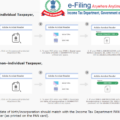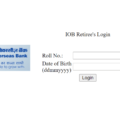Income tax is the backbone of any nation. Income tax must be paid honestly for the proper growth of country. I’ve seen many people always confused about income tax. They just don’t know about how to calculate tax they need to pay on their income. A big portion of population finds itself in dilemma whenever it’s about income tax on pension income.
If you are among such, then this post is nothing less than a boon for you, as it covers everything you need to know about income tax on pension income. Just keep reading ahead to clear the air of doubts that you might be having regarding income tax on pension income after retirement.
Income Tax on Pension Income
The income tax on pensions depend on the situation your pension fits in. Confused? Don’t panic! I’m covering the income tax details section-wise.
Tax Treatment of Pension
Before I proceed ahead providing you details, let me drop light on tax treatment of pension. To put in the shortest words, Pension is retirement benefit. Needless to mention that it is payable to any particular employee or to anyone dependent on him/her, depending on his/her past employment.
Under section 192 of Income Tax act on payment, tax is payable on the pension income. So those who think there is no income tax to be paid on pension income, get your facts updated.
One thing to be mentioned here is that if the pension income is received by dependents of employee, then it is taxed under head income from other sources. The family pension is not covered under section 192, therefore TDS is not deductible on it whatsoever.
- In case the pension is received from UNO by the employee him/herself or any of the family members, then it is not chargeable on tax at all.
- In case of family members of armed forces, after the death of employee, whatever family pension is received, is exempted from income tax. It is exempt under section 10 (19) in some cases.
- In the cases other than armed forces, after the death of employee, whatever family pension is received, is taxable in recipients’ hands. It is so under section 56 under the head ‘income from other sources‘. Under the section 57, standard deduction is available. This deduction is 1/3 of the pension, or is Rs. 15,000. The one which is lower is what the recipient need to pay.
- There are different cases in case of pension received by an employee during his lifetime. Tax treatment varies as per the situation in this case. It varies depending on whether pension is commuted or not.
1. Uncommuted Pension
Most of people like to get pension monthly. This periodic pension is known as uncommuted pension. One always needs to pay income tax on such pension.
2. Commuted Pension
Sometimes, recipients like to opt for the method of getting lumpsum amount than receiving it periodically. Such pension is known as commuted pension. In such pension, tax treatment varies as per the case.
- For all Govt. Employees there, the pension is totally exempt from tax.
- For other employees, there are further two cases:
- In case the gratuity is received, 33 percent of whatever normal pension is recipient is liable to receive, is exempt from tax.
- In case the gratuity is not received, one half of whatever normal pension the recipient is liable to receive, is exempt from tax.
So, it was all you need to learn about income tax on pension income after retirement. For first instance, it may sound a little complex to understand, but is not so. Do use the below comment box to send your queries to us.








Sir,while calculation of I T for pensioners (retired), is there any provision for deduction of house rent as in service candidates
Respected sir
I am a central government pensioner I am receiving monthly pension through SBI.
FORM 16 issued by the bank indicates amount credit as 1l months pension after tax deduction.26as also reflects same. I want to know why 12 months gross pension is not taken in to account?
Should I show 12 months gross pension as salary in IT return .This will cause missed match in 26as will there be any problem?
It has been clarified that the standard deduction on family pension is admissible to the extent of 1/3rd of family pension or Rs 15,000, whichever is less. My query is that the deduction of Rs 15,000(in my case it’s 15000) have to be done in which column or head of ITR-1 income tax return form or we have to self deduct this 15000 amount from family pension and enter the remaining amount of family pension in [Income from other sources] column/head of ITR-1.
AS in case of Interest Income from banks. We have to show this interest income in Income from other sources Column/head of ITR-1. In case if interest income from bank is 18000 then we have to show 18000 in column [Income from other Sources]. and deduction of interest of 10000(in this case) comes in column 5q i.e 80TTA.
Similarly, i want to know that the deduction of Rs 15,000 (in case of family pension) have to be done in which column or head of ITR-1 form or we have to self deduct this 15000 amount from family pension.
Sir, post office investment scheme or sbi investment scheme which is better for an retired persons. Please send me your decision.
Both are good. Go for anyone you wish.